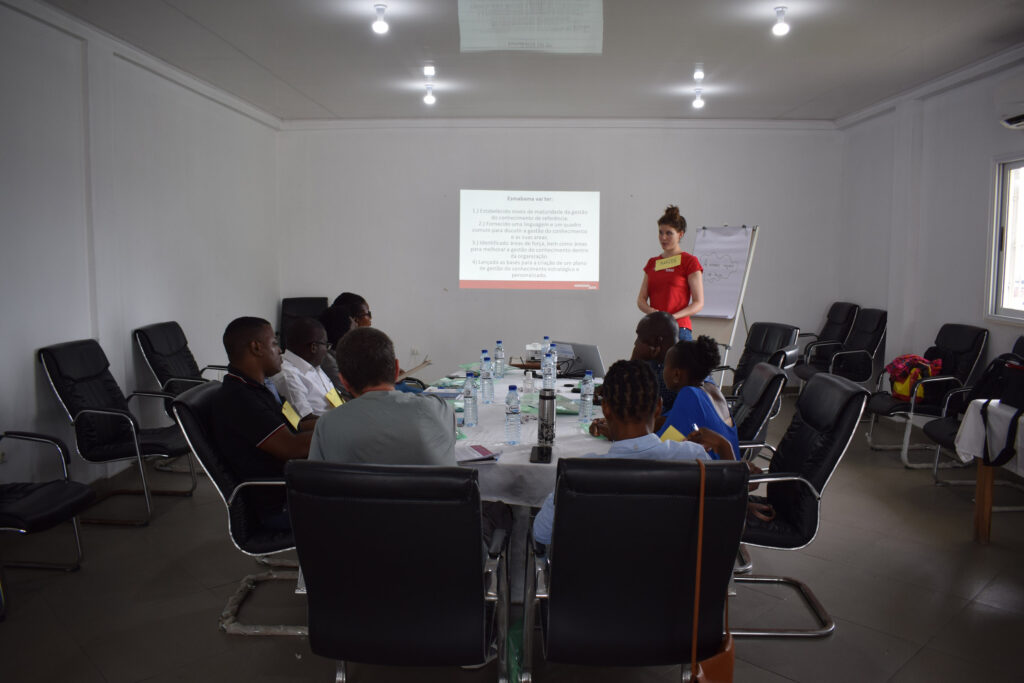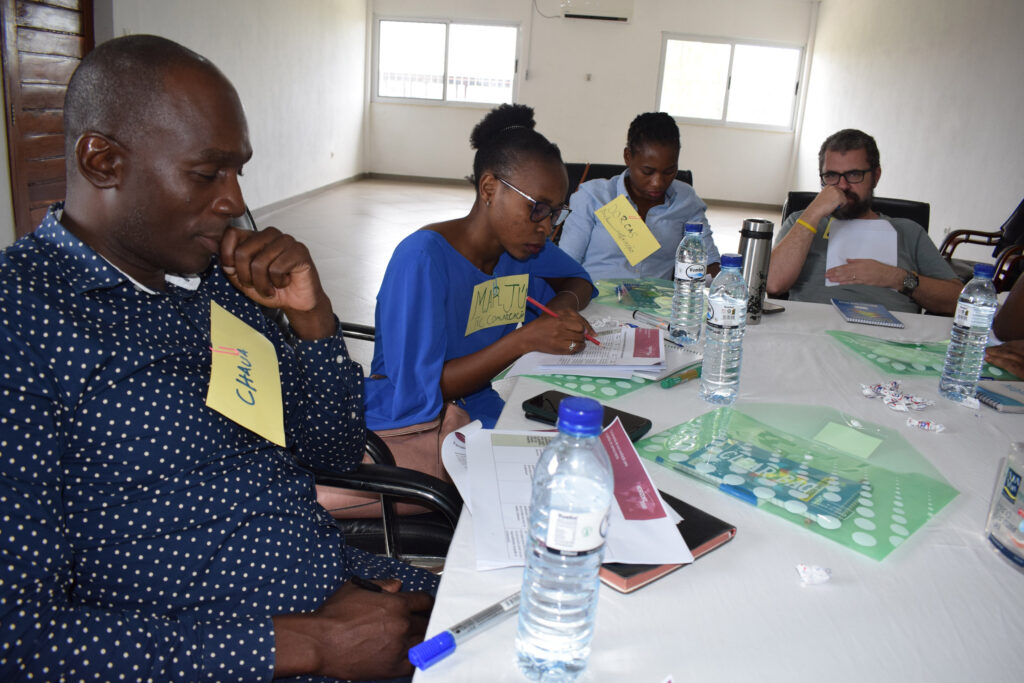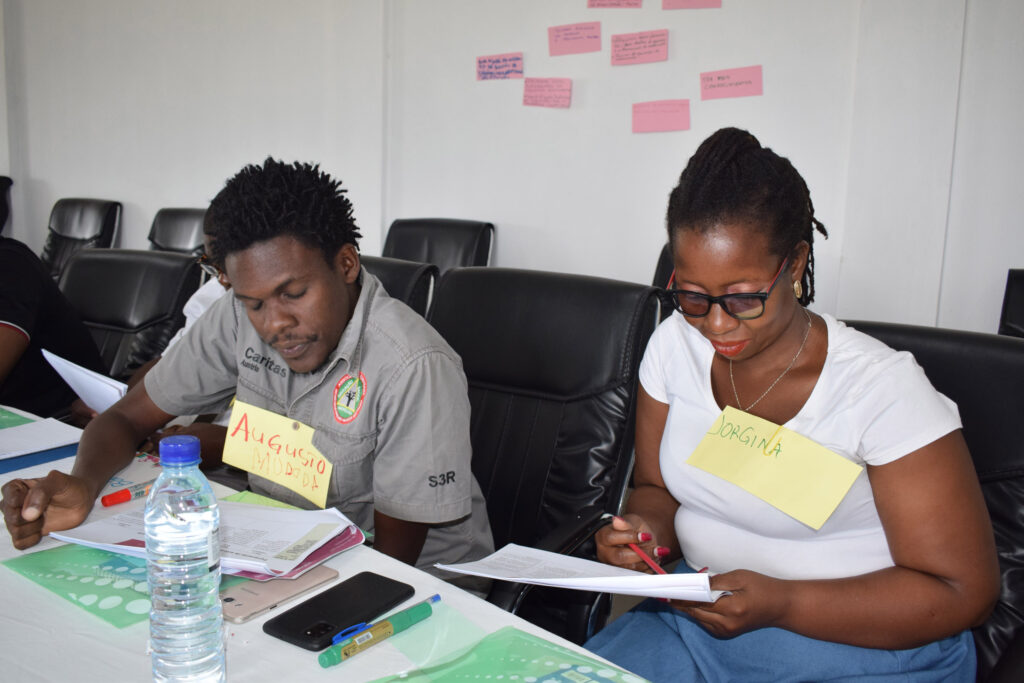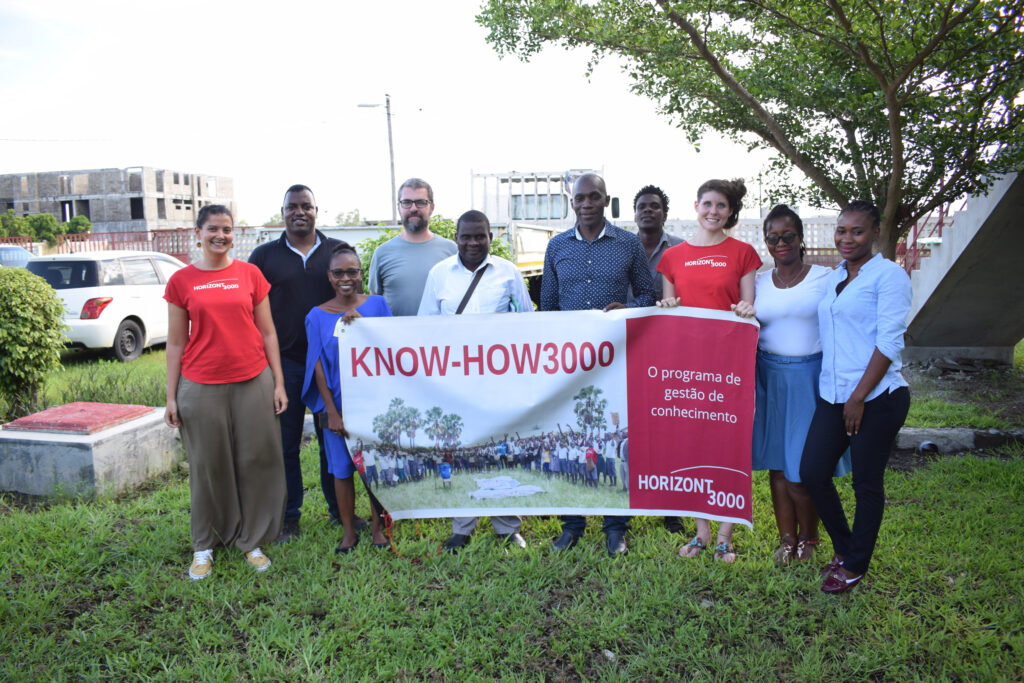Make Your Experiences Count. They Can Change the World.
LET’S BRING ALL OF OUR KNOWLEDGE AND EXPERIENCES TOGETHER.
TOGETHER WE KNOW MORE. TOGETHER WE ACHIEVE MORE. TOGETHER WE DO BETTER.
LET’S BRING ALL OF OUR KNOWLEDGE AND EXPERIENCES TOGETHER.
TOGETHER WE KNOW MORE. TOGETHER WE ACHIEVE MORE. TOGETHER WE DO BETTER.
Published: May 31, 2023
Assessing your organisation’s Knowledge Management capacity can be an important part of the KNOW-HOW3000 programme. Why? Well, assessment allows you to identify strengths and areas that need improvement, giving you a clear roadmap for enhancing your Knowledge Management (KM) practices.
Since 2020 we have used a clear and user-friendly Knowledge Management Capacity Self-Assessment Tool (KM-CAST), which was developed by Petra Herout and Annika Witte. After being tested in East Africa, it was translated into Portuguese and is now being deployed in Mozambique. Plans are on the way to translate the KM-CAST into Spanish and French as well.
To learn more about how this tool has worked in practice, we talked with KM Technical Advisor Mareen Zeitelhofer, who has been facilitating four workshops in Mozambique so far.

What is the idea behind the KM Self-Assessment-Tool?
In our work across all project regions, we have noticed that systematic knowledge management is not a widespread practice yet. However, there is a growing interest in knowledge management by our partner organisations. So, we have developed this capacity assessment tool that our partners can use on their own or with an external facilitator.
How does it work?
The tool enables our partner organisations to self-identify their level of knowledge management using a 5-point evaluation system. In total 9 different knowledge management areas are assessed and the results help organisations to: identify gaps, raise awareness, and determine areas where further attention or investment is required.

What has been your experience with this tool so far?
We started last year to test the self-assessment-tool with our partners organizations in Mozambique. My experience, as a facilitator, is very positive: The tool is easy to use and it enables the organisation to get a good overview of the strengths and weaknesses in their knowledge management.
How has it been received by partners?
The written feedback that I received from the workshops was positive and some of the partners even started to develop an action plan in knowledge management based on the results of the assessment. However, they have also shared, that some specific terms need to be better clarified and that there should be more practical examples included in the tool.

What are further plans in Mozambique concerning the KM Self-Assessments?
For those partners, that didn’t use it yet, we offer to do a workshop with them. For those partners, that used already the self-assessment-tool and developed an action-plan, we accompany them to overcome some knowledge management gaps. If needed we offer support using one or more methods of the KNOW-HOW3000 programme.

What is needed beside the Self-Assessments to further promote KM in the future?
The partners are highly motivated to learn more about knowledge management and the different methods which they can use in their daily basis to improve their performances. So, I see a need in the future, to offer more specific trainings about knowledge management for our partners.
Relevant topics for that could be: How to design a knowledge management strategy? How to avoid knowledge management loss within an organization? How to measure knowledge management impacts? How to do apply the systematization method? How to build an institutional memory? And many more!